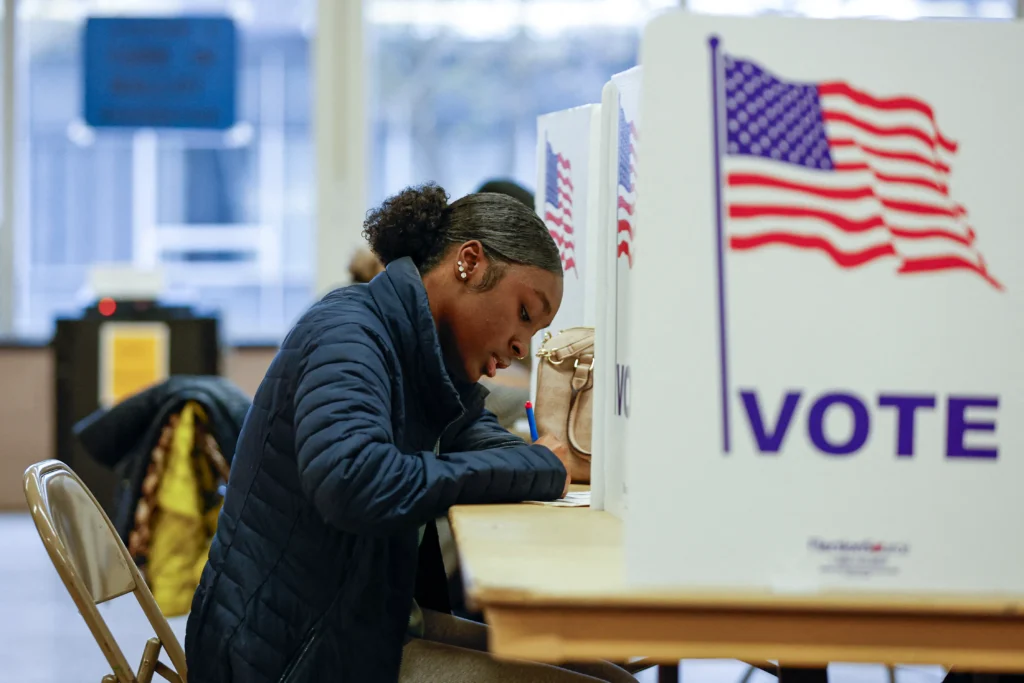Yesterday was a big day for the US, with more than 161.4 million voters casting their ballots in what promised to be a watershed moment for democracy globally. America represents a classic case of what French anthropologist Claude Lévi-Strauss described as “the raw and the cooked.”
Through this theory, he sought to demonstrate how humanity struggles to strike a balance between its dualities: the good and the bad, the just and the unjust, the true and the fake, the elected and the appointed, the real and the contrived, and other such dichotomies that characterize human societies.
America found itself at the fulcrum of this dichotomy as the election unfolded. Many lovers of democracy around the world were watching, knowing the election’s ramifications would be felt across the globe.
This was what made the US presidential election one of the biggest global events of the year. It wasn’t just Americans deciding who would guide their nation over the next four years. The winner, now declared, is the person Americans call “the leader of the free world,” and their policies will impact practically every country around the globe.
The election came at a critical point in global geopolitics. There was widespread unrest about the war in Gaza, which had claimed over 43,000 lives—mostly Palestinians—and the ongoing war in Ukraine, where another 36,000 people had been killed this year.
But these were not just conflicts between two countries on opposite sides. China and North Korea had shown support for Russia, Iran had sided with Palestine, and France appeared to be distancing itself from Israel.
America stood at the nexus of these conflicts, and the election outcome would determine the direction of world peace.
Interestingly, Americans had been looking inwards—rather than outwards—when making their choices. Those who supported Democratic candidate Kamala Harris believed she represented reason, safety, progress, and stability, casting her Republican rival, Donald Trump, as erratic, unpredictable, and disruptive.
On the other hand, Trump’s supporters saw him as the man best suited to bring much-needed change to American politics by making the US the center of their political universe. In him, they saw a leader committed to protecting US borders from the tidal waves of illegal immigrants that were increasingly threatening it.
For the rest of the world, preferences about who should win were shaped by perceptions of right- and left-wing politics, views on immigration, and personal interests, particularly for those with family or friends in the US.
In Kenya, for instance, America had been the leading source of Diaspora remittances until this year. For Kenyans who rely on dollar transfers from relatives in the US, the outcome of the election was a direct bread-and-butter issue.
For other observers, myself included, the more important question was what the US election portended for democracy globally. In their book How Democracies Die, Steven Levitsky and Daniel Ziblatt raise a pertinent question for our time: “Is our democracy in danger?” They, like many others, worry about the rise of authoritarianism in different corners of the world and have turned to history to better understand the future of democracy.
Will democracy endure, or are we inching our way into a post-democracy era, one country at a time?
In addition to the rise of authoritarianism, the world has witnessed the emergence of national leaders gaining power on the platform of rewriting the rules of political engagement—cutting off traditional alliances and dismantling the political systems we have long known.
Some of these leaders are elected, but others have elbowed their way into power.
The question this raises is: How will this play out in America, and what does it mean for the future of democracy? As Levitsky and Ziblatt have observed, “This is a question we never thought we’d be asking.



